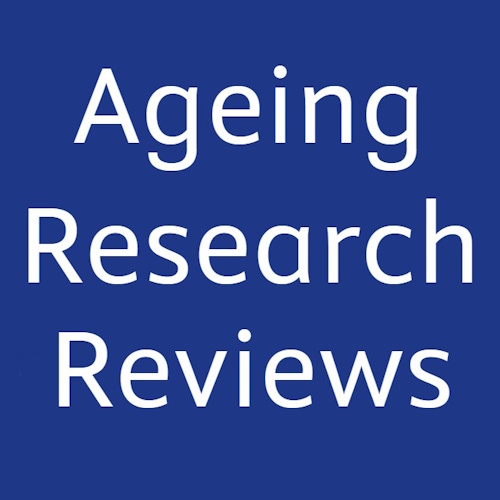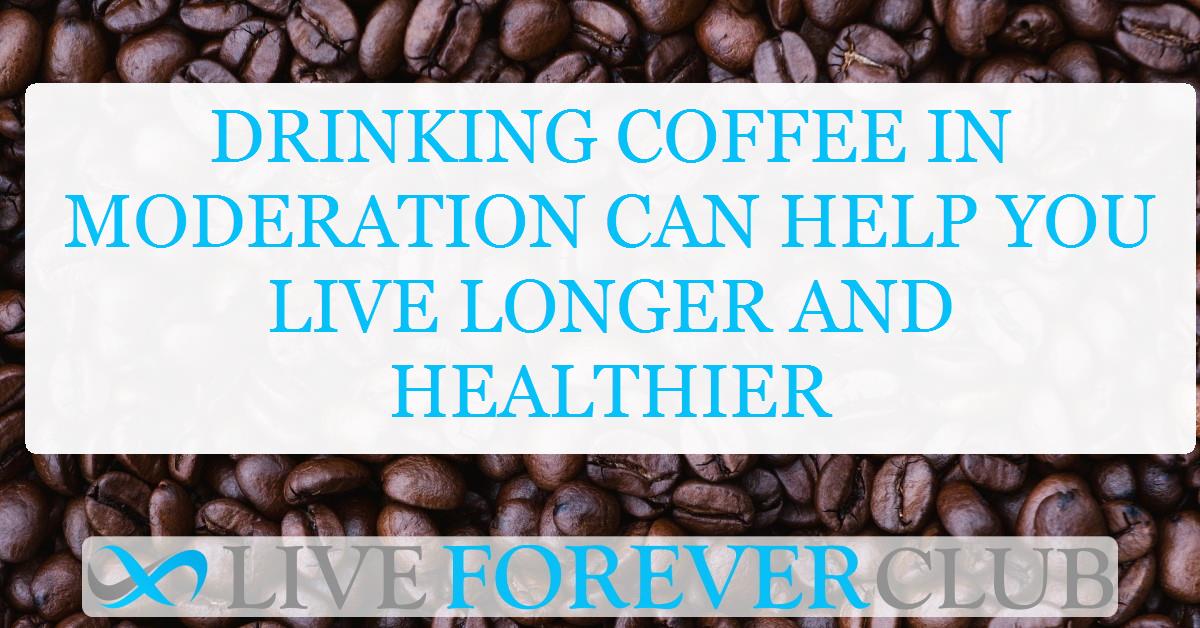Coffee, once labeled as a harmful habit, is now considered a potential ally in maintaining health and longevity. Recent scientific studies have shed light on its profound effects on ageing, healthspan, and lifespan. Coffee’s main components, caffeine and chlorogenic acids, have been identified as key contributors to its health benefits, which include attenuating mortality from chronic diseases and mitigating age-related functional decline. This blog delves into the growing body of evidence on the positive impact of coffee on human ageing, focusing on epidemiological studies and the cellular mechanisms at play.
Coffee and its Components: A Key to Health and Longevity
Coffee is the second most consumed beverage worldwide, after water, with over 2.25 billion cups consumed daily. It contains over 2000 bioactive compounds, many of which, including caffeine and chlorogenic acids, have shown beneficial effects on human health. These compounds work in synergy to promote longevity and healthspan by enhancing the body's ability to cope with ageing and stress.
Caffeine, the most widely recognized component of coffee, has long been known for its stimulant effects on the brain. It works by antagonizing adenosine receptors, which helps improve mental and physical performance. But caffeine’s impact goes beyond temporary alertness. Its chronic consumption has been shown to modulate stress adaptation, inflammation, and metabolic processes, all of which contribute to healthier ageing.
Chlorogenic acids, polyphenols found in coffee, are potent antioxidants that help protect the body from oxidative stress, a major contributor to ageing. These compounds also regulate inflammation, support metabolic health, and improve immune function. Together, caffeine and chlorogenic acids offer a comprehensive approach to mitigating the effects of ageing on the body.
Coffee’s Positive Impact on Lifespan
Over the past two decades, numerous epidemiological studies have shown a strong link between moderate coffee consumption and increased lifespan. Research has found that coffee drinkers have a lower risk of dying from various causes, including cardiovascular diseases, stroke, respiratory diseases, and even cancer. This association holds true across different geographical regions and ethnicities, further emphasizing the global relevance of coffee’s benefits.
For instance, a meta-analysis of over 50 cohort studies across Europe, the Americas, and Asia found that regular coffee consumption is associated with a 17% reduction in all-cause mortality. This translates to an average increase of 1.8 years in healthspan. In particular, coffee consumption was linked to a reduced risk of death from major diseases like cardiovascular disease, stroke, cancer, and respiratory illnesses.
Interestingly, the benefits of coffee are more pronounced in non-smokers and those who consume coffee without added sugar or cream. While some confounding factors, such as smoking and alcohol consumption, need to be considered, the overall evidence suggests that coffee offers significant protection against premature death and chronic diseases.
Optimal Coffee Intake: How Much is Enough?
The optimal amount of coffee for health benefits appears to be around 2 to 3 cups per day. Studies have shown that this amount offers the greatest reduction in mortality, with diminishing returns for higher coffee consumption. While drinking coffee beyond this range may not be harmful for most individuals, excessive intake could lead to side effects such as anxiety, restlessness, and insomnia.
It is also important to note that the type of coffee consumed can influence its health benefits. Filtered coffee, for example, has been linked to more favorable outcomes compared to unfiltered coffee, due to differences in the compounds that make it into the final cup. Similarly, decaffeinated coffee, though still beneficial, appears to have a lesser impact on lifespan compared to its caffeinated counterpart.
The inter-individual variability in response to coffee, due to genetic differences, is another factor to consider. Polymorphisms in genes related to caffeine metabolism can influence how individuals benefit from coffee. However, the general consensus is clear: moderate coffee intake is beneficial for health, and the benefits are observed across different age groups, genders, and ethnicities.
Coffee and Ageing: Impact on Age-Related Diseases
While coffee consumption has been shown to extend lifespan, its most significant impact may lie in its ability to delay the onset of age-related diseases and preserve function in older adults. Ageing is a complex process characterized by the gradual decline in physical and cognitive function, and an increased susceptibility to chronic diseases like cardiovascular disease, diabetes, and cancer.
Coffee has been shown to combat many of the biological mechanisms that underlie ageing. One of the key aspects of ageing is genomic instability, which leads to cellular damage and dysfunction. Research has indicated that coffee consumption can protect DNA from oxidative damage and reduce the frequency of DNA strand breaks. This protective effect is particularly significant in older adults, whose cells are more prone to genomic instability.
Coffee’s role in preventing age-related diseases goes beyond DNA protection. It also supports metabolic health by improving insulin sensitivity, reducing the risk of type 2 diabetes, and modulating lipid metabolism. The regular intake of coffee has been shown to lower triglyceride and LDL cholesterol levels, both of which are linked to cardiovascular diseases.
Additionally, coffee’s anti-inflammatory properties are critical in combating "inflammaging," a chronic low-grade inflammation that contributes to age-related diseases. Inflammation is a hallmark of ageing, and its management is crucial for maintaining health in older age. Studies have shown that coffee can reduce markers of inflammation, including C-reactive protein, interleukin-6, and tumor necrosis factor-alpha.
Coffee’s Impact on Cognitive Function and Mental Health
Cognitive decline, including memory loss and dementia, is a major concern for older adults. Several studies have found that coffee consumption is associated with a lower risk of developing dementia, particularly Alzheimer’s disease. The protective effect of coffee on cognitive function is thought to be linked to its ability to regulate brain metabolism, reduce oxidative stress, and modulate inflammation.
Caffeine, in particular, has been shown to improve memory and cognitive performance in older adults. It helps increase attention and reaction time, and some studies suggest that it may even protect against neurodegeneration in the brain. This effect is particularly important for ageing individuals, as cognitive decline is one of the most debilitating aspects of ageing.
Moreover, coffee’s ability to improve mood and reduce the risk of depression is well-documented. Depression is common among older adults and can have a profound impact on their quality of life. Coffee consumption has been linked to a reduced incidence of depression and anxiety, possibly due to caffeine’s effects on neurotransmitter regulation and stress response pathways.
Coffee and Physical Health
As we age, physical frailty becomes a significant concern. Frailty, which includes the loss of muscle mass and bone density, increases the risk of falls, fractures, and reduced mobility. Coffee has been shown to help preserve physical health in the elderly by improving muscle strength, preventing sarcopenia (muscle loss), and supporting bone health. Studies have indicated that regular coffee drinkers have a lower risk of developing osteoporosis and fractures.
In addition to its effects on muscle and bone health, coffee may also play a role in preserving sensory functions, including vision and hearing. Ageing is often associated with a decline in sensory perception, such as age-related macular degeneration and hearing loss. Some studies suggest that coffee consumption is linked to a reduced incidence of cataracts and other vision impairments. While the evidence on coffee’s effects on hearing is mixed, some studies indicate that coffee drinkers may have a lower risk of hearing loss and tinnitus.
How Coffee Affects the Ageing Process
The biological mechanisms behind coffee’s effects on ageing are complex and still being explored. One of the most significant findings is that coffee consumption impacts key cellular processes involved in ageing, including oxidative stress, proteostasis, and inflammation.
Oxidative stress, which results from an imbalance between free radicals and antioxidants, is a major contributor to ageing and age-related diseases. Coffee’s high antioxidant content, particularly chlorogenic acids, helps combat oxidative stress by neutralizing free radicals and protecting cells from damage. Additionally, coffee’s ability to modulate the activity of sirtuins, AMPK, and mTOR pathways plays a role in maintaining cellular function and protecting against age-related decline.
Proteostasis, the process by which cells maintain protein stability, is another key factor in ageing. As we age, protein misfolding and accumulation can lead to cellular dysfunction. Coffee has been shown to activate autophagy, a process that helps remove damaged proteins and maintain cellular homeostasis. This effect is particularly important for preventing neurodegenerative diseases like Alzheimer’s and Parkinson’s.
Furthermore, coffee’s anti-inflammatory effects are crucial for maintaining health during ageing. Chronic inflammation, or "inflammaging," contributes to the development of age-related diseases, and coffee’s ability to modulate inflammation helps protect against these conditions. The synergistic effects of caffeine and chlorogenic acids on inflammation, stress adaptation, and oxidative damage are central to coffee’s benefits for ageing.
Coffee as a Fountain of Youth?
While coffee is no miracle cure, its regular consumption offers a simple and effective strategy to enhance healthspan and potentially extend lifespan. The growing body of evidence supports the idea that coffee, when consumed in moderation, can help prevent major causes of mortality and mitigate the effects of ageing. From improving cognitive function to protecting against chronic diseases, coffee has proven itself to be a powerful tool in the fight against ageing.
As research continues to uncover the underlying cellular mechanisms, it becomes increasingly clear that coffee’s health benefits extend far beyond its ability to wake us up in the morning. Whether it’s protecting DNA, modulating metabolism, reducing inflammation, or preserving sensory function, coffee is emerging as a key player in promoting healthy ageing.
The study is published in the journal Ageing Research Reviews. It was led by Rodrigo A. Cunha from University of Coimbra, Portugal.







